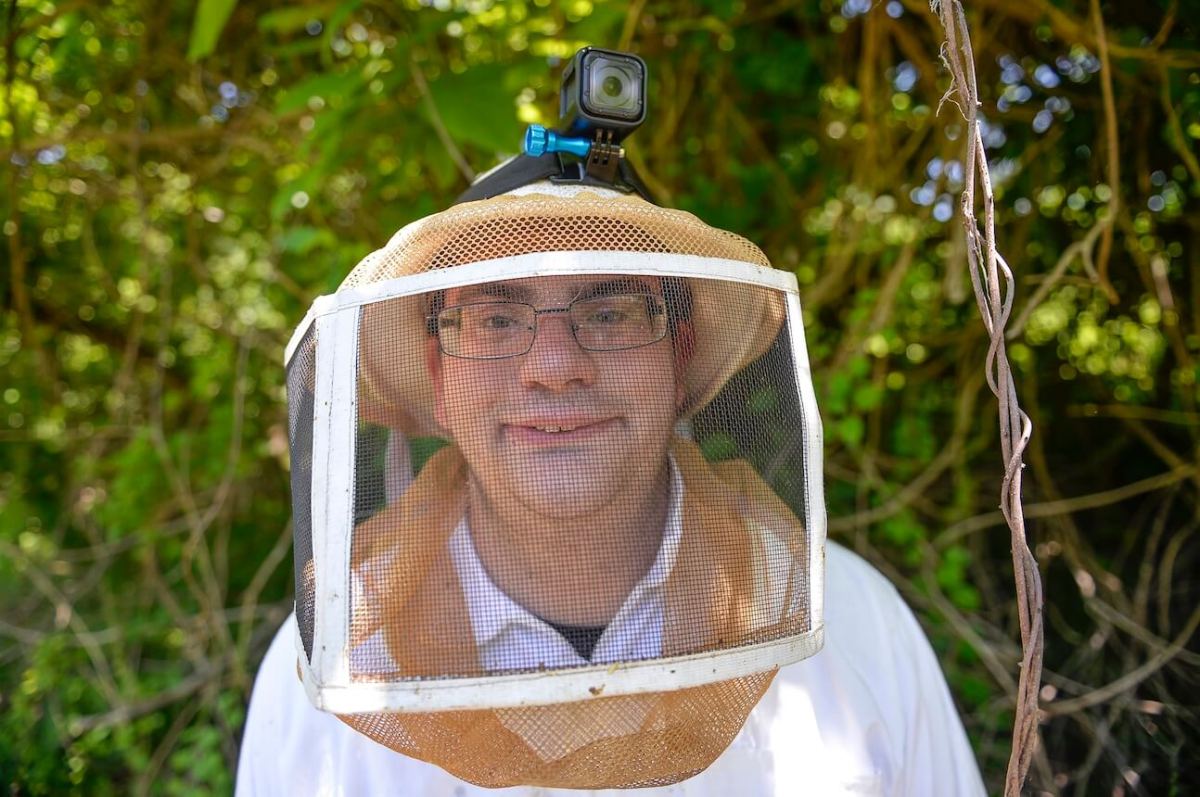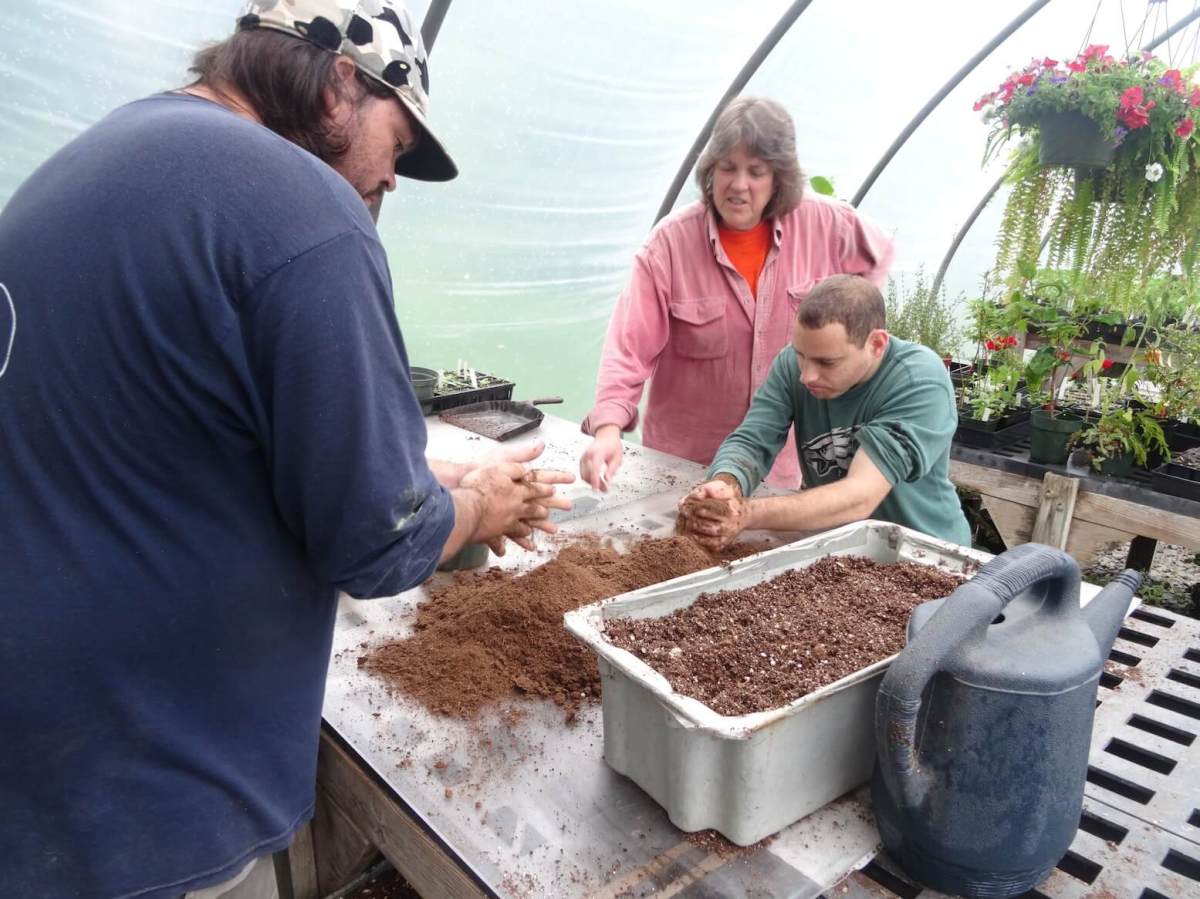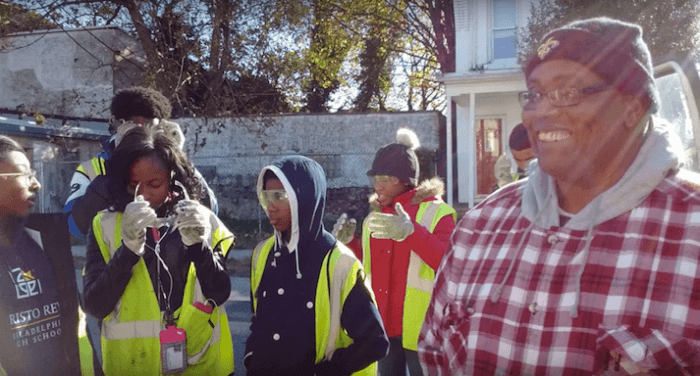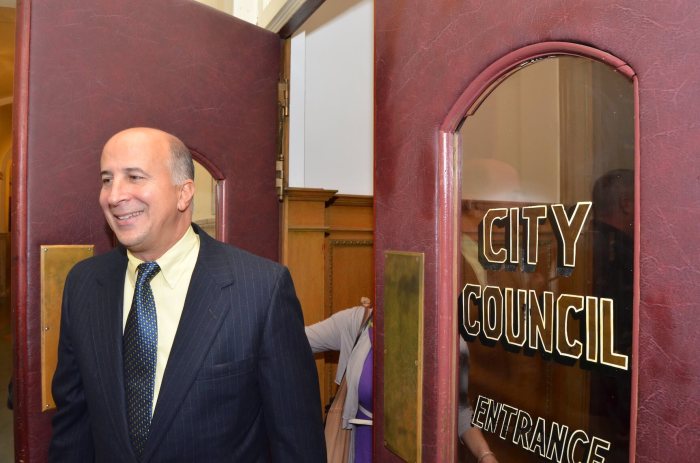In a grassy unused field toward the back of Mt. Moriah Cemetery in Southwest Philly, Jimmy Cinque tends beehives.
“I like the bees,” Cinque said, pointing with his thick gloves at a gooey frame thick with honeycomb drawers. “These ones are about to hatch.”
What sets Cinque apart from other beekeepers is that he is an adult with a developmental disability. He works part-time with the bees.
It’s a sign of how far this community has come from the not-so-distant past when many people like Cinque were institutionalized in what was later determined to be inhumane conditions. But decades after de-institutionalization, another change is coming. Cinque found a vocation he truly enjoys through the efforts of Community Integrated Services (CIS), a Philadelphia nonprofit that works in the field of “supported employment” — helping adults with developmental disabilities find work in the community. The jobs can be anything from beekeeping to working at a grocery store or hotel, as long as it takes them into the world at large to earn a living. This may be the wave of the future for people like Cinque. Under rules issued in 2014 by the U.S. Department of Health and Human Services, all Medicaid-funded programs for adults with developmental disabilities must try to find them employment in the community. But making that transition could prove quite a hurdle. The rule would be a huge change for the many existing programs known as “sheltered workshops” where adults with developmental disabilities work under supervision to earn an income, usually less than minimum wage. “Unfortunately, the final rule is written as if every developmentally disabled person can do that,” said Bob Kreider, CEO of Devereux Advanced Behavioral Health Services, which operates such workshops in Pennsylvania. “That’s really not true for the person with an IQ of 35, who can’t toilet themselves and is nonverbal.” Along with their mental health programs around the nation and group homes, Kreider’s company operates The Shops at Devereux in Devon, Pennsylvania. Dozens of adults with developmental disabilities work under supervision at a variety of shops, from a car service center to a T-shirt embroidery store. “Places like this are often viewed as segregated from the general public,” said Dorothy Carter, program administrator at the Shops. “But my individuals like it here. They’re happy with the system and supports they have here. Everyone here receives a paycheck. They’re real jobs.” Nonetheless, Susan Schonfeld, executive director of CIS, which helped Cinque find his niche, thinks supported employment is the way to go.
“It’s time for change,” Schonfeld said. “Everybody’s got something they bring to the world. … We take that time to figure out their personal genius.”
Nancy Thaler, deputy secretary of the state’s Department of Human Service’Office of Developmental Programs, also believes the new rules are a positive change.
“This is the next generation of transformation, from institutions to the community,” she said. “The purpose is that people are fully engaged in the community, they’re part of the community, fully involved in the community, including work.” Thaler said the state is planning to fall in line with the new rules by gradually asking programs like the Shops at Devereux to increase community time: first up to 50 percent in 2017, and then up to 75 in the future. She believes the transition will be a success. “When everybody was in institutions, people couldn’t imagine how people with disabilities could possibly live in a community,” she said. “We have to imagine and create and build on the success of the past. Over and over, people with disabilities could do things we thought they couldn’t.”



























